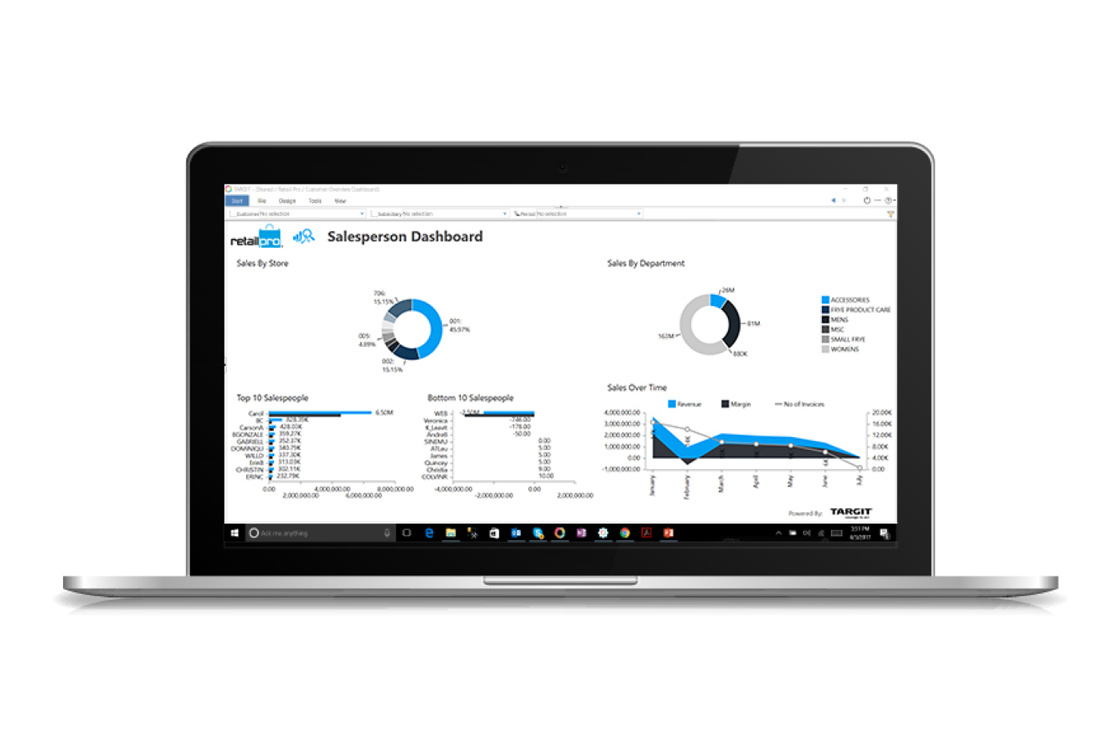
If the first step in becoming a data-driven organization is to decide which questions deserve immediate answers, the second step has to determine where to find the answers. Retail businesses process massive amounts of information, with every customer transaction, every purchase order, every return, and every exchange generating new records and data that require processing and interpreting.
Many of those records are processed through an organization’s chosen Enterprise Resource Planning (ERP) solution. ERPs do a great job of collecting and organizing data, and they offer a simple platform for reviewing that raw information. But there are big differences between ERPs and business intelligence and analytics platforms.
For one, business intelligence platforms generally have greater visualization, analytics, and predictive capabilities. Also notable is that business intelligence and analytics platforms can incorporate sources above and beyond the ERP for consideration.
“You just need the right platform to process and analyze it."

Data-driven businesses use all of the useful data that’s available to them, regardless of the source, and that means looking at other platforms in the organization:
- Customer Relationship Management (CRM) data
- Point-of-sale data
- Data from eCommerce modules on company websites
- Supply Chain Management (SCM) data
- Google Analytics data
- Marketing automation data
- Direct feedback from customers
Business intelligence software collects all of these disparate data sources and interprets that information into knowledge/ intelligence that you can use to make an educated decision.
The answers to your questions are found in this amalgamated data – you just need the right platform to process and analyze it.
ERP systems are great at collecting data, business intelligence systems are great at processing the data into an easy-touse format. Analytics allow you to drill into raw numbers or transactional data and make comparisons, in turn allowing you to better predict future analytics and trends.




